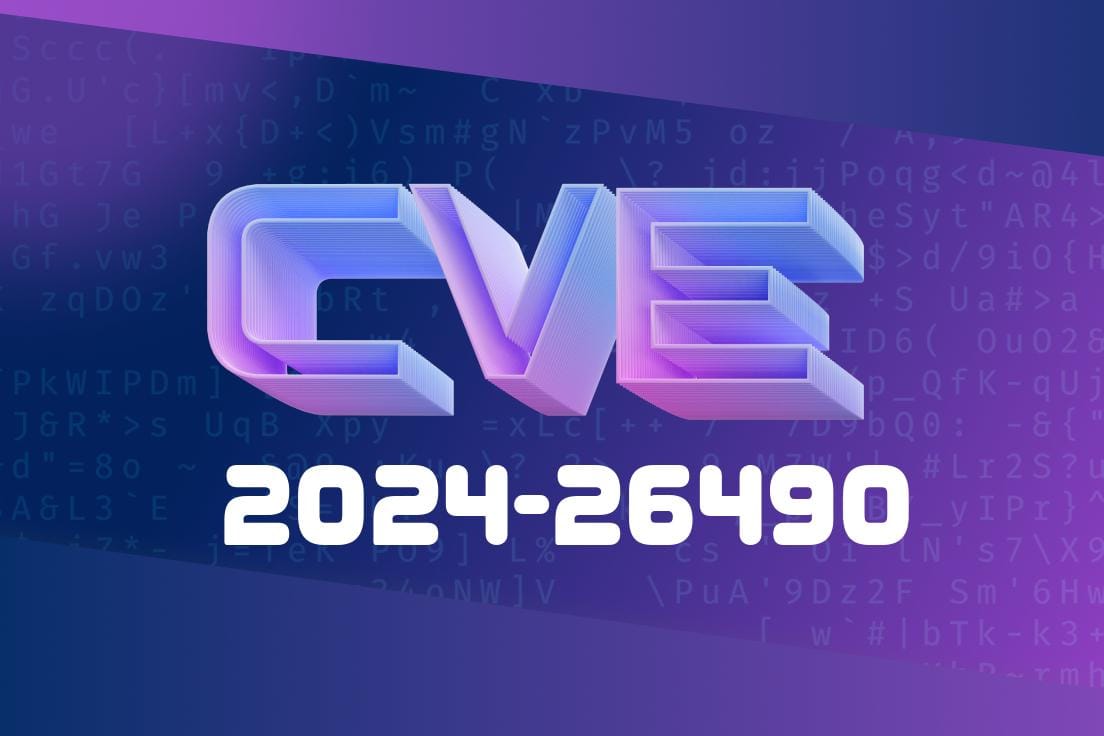A serious cross-site scripting (XSS) vulnerability—CVE-2024-26490—was discovered in the JD Simple addon of flusity-CMS v2.33. This vulnerability allows attackers to inject and execute malicious JavaScript or HTML through the “Title” text field, potentially compromising website visitor data, session cookies, or even defacing website content.
In this post, we’ll break down what CVE-2024-26490 means, how the exploit works, and how you can protect your website. We’ll show code examples, give you references, and make it all easy to understand—even if you’re not a cybersecurity expert.
What is CVE-2024-26490?
CVE-2024-26490 is a unique identifier for this security issue, which affects the JD Simple (addon/module) included in the flusity-CMS v2.33 platform. It allows unauthenticated attackers to insert malicious scripts into web pages by abusing inadequate input checks on the “Title” field. Visitors who load the page where the hacker’s script appears can have their data stolen, sessions hijacked, or be redirected to harmful sites.
Why Does This Happen? (Technical Short Explanation)
The affected module, JD Simple, fails to properly sanitize text input in the “Title” field. That means if you put JavaScript code or HTML tags in the Title, the system just stores and displays it—no questions asked. Browsers then execute the code when users load the page. This is classic “reflected XSS.”
## Vulnerable Code (Pseudocode/Snippet)
Typical vulnerable server-side PHP code might look like this
// Vulnerable code in flusity-CMS v2.33 JD Simple Addon
$title = $_POST['title'];
// The input above comes from an HTML form, with no sanitization
// Save to database
$db->query("INSERT INTO jd_simple (title) VALUES ('$title')");
// Later, the data is displayed *unescaped* in a page
echo "<h2>" . $row['title'] . "</h2>";
The problem: User input is passed to the database and then output directly, without removing or escaping HTML or JavaScript.
Say an attacker enters the following as the Title in the JD Simple module
<script>alert('XSS by CVE-2024-26490!');</script>
Whenever anyone loads the page that displays this Title, the browser executes the script—popping an alert. More dangerous payloads (cookie stealers, redirects, keyloggers) can be used in real attacks.
Visual Step-by-Step
1. Login: Attacker accesses the JD Simple addon's Title field (maybe as an admin or with user-generated content rights).
`
`
3. Page Loads: Any user visiting the page runs the attacker’s code, sending their cookies to evil.example.com.
Remediation – How to Fix
To fix CVE-2024-26490, developers must sanitize user input before storing or displaying it.
Fixed code with PHP
// Sanitize title input in PHP
$title = htmlspecialchars($_POST['title'], ENT_QUOTES | ENT_HTML5, 'UTF-8');
// Now $title is safe, even if it includes strange characters
$db->query("INSERT INTO jd_simple (title) VALUES ('$title')");
// Or, escape on output (better than nothing)
echo "<h2>" . htmlspecialchars($row['title'], ENT_QUOTES | ENT_HTML5, 'UTF-8') . "</h2>";
Use Content Security Policy (CSP).
- Always validate/sanitize on both input and output.
References & More Reading
- NVD Entry for CVE-2024-26490
- OWASP XSS Guide
- PHP: htmlspecialchars Docs
- flusity-CMS GitHub (possibly outdated) *(Check for patches/updates)*
Disclosure: As of writing, a patched version for flusity-CMS JD Simple module is not universally available—users are urged to sanitize inputs ASAP.
In Summary
CVE-2024-26490 makes it trivial for attackers to harm your site and its users via the JD Simple addon on flusity-CMS v2.33. If you manage a flusity-CMS site, review your code, apply proper input sanitization, and warn users/clients about this XSS risk. If someone else manages your site, share this post!
For demonstration and education only—do not exploit live systems without permission.
Timeline
Published on: 02/22/2024 06:15:57 UTC
Last modified on: 10/31/2024 16:35:09 UTC
